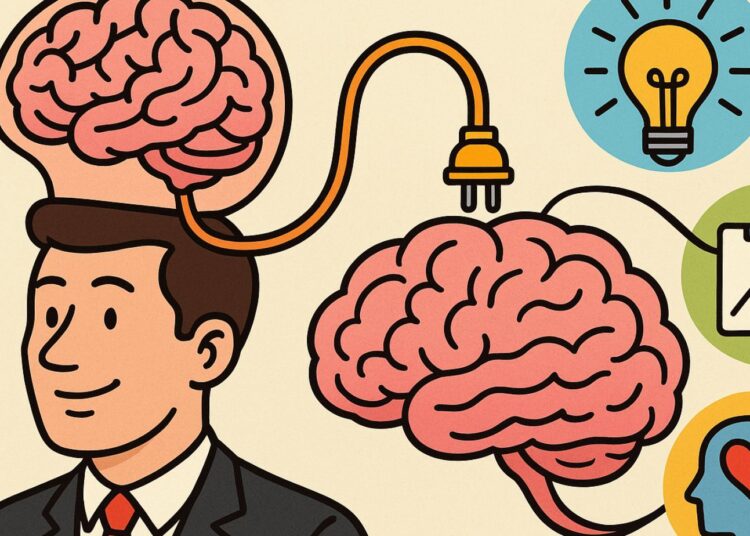To achieve success in any area of life, it’s not enough to make smart decisions, as you also need to master the art of managing your thinking. Let’s explore what entrepreneurs should know about how the brain works and how to make it work in their favor.
Observe Human Needs
Needs can be thought of as built-in programs embedded in the brain’s deep structures. They shape our temperament and subconscious, forming the foundation of our thinking and behavior. Needs can be divided into three key categories:
- Vital: food, safety, comfort
- Social: everything related to interaction with others — family ties, teamwork, leadership, empathy
- Curiosity or self-development: the drive that moves us forward, pushes us to overcome challenges, and motivates us to learn from others’ experiences
How this helps an entrepreneur:
Every product or service is aimed at meeting one or more needs. If you clearly understand which needs your product addresses, it’s easier to position it and determine your place in the market.
Needs activate both motivation and behavior. This means that if a client understands how your product meets their needs, they’re more likely to buy it. Moreover, the brain’s “needs center” is responsible for impulsive purchases — something you can leverage to overcome distrust and spark interest at the first point of contact.
For example, Hannah runs https://canadianbestcasino.ca/ for players who love exploring new games and testing fresh strategies. Her concept sells well because it taps into the curiosity need. Each site page introduces rare slot titles, unique blackjack variants, or limited-time bonus challenges that players have never seen before. This not only satisfies their desire to learn and try something new but also keeps them engaged and coming back for the thrill of discovery.
Train Your Emotional Intelligence
Emotional intelligence (EQ) is the ability to recognize, understand, and manage your own emotions, as well as to work effectively with the emotions of others. From a neuroscience perspective, emotions perform several functions:
- Evaluative: help determine whether a need has been met and whether a goal has been achieved
- Reinforcing: emotions shape learning, for example, if something brings joy, we’re more likely to repeat the action that caused it
- Communicative: emotions help us understand others and express our own experiences
How this helps an entrepreneur:
Strong emotional intelligence makes it easier to work in a team, resolve conflicts, and build business relationships. Being attuned to your emotions helps you track interim results and understand whether you’re moving toward your goal or away from it.
The more attention you pay to your emotional state, the easier it is to manage stress and handle negative experiences. This reduces the risk of burnout and frees up energy for activities you truly enjoy.
Develop Your Speech Model
The brain’s “speech model” is a complex system built on neural networks. It processes and integrates sensory signals — everything we see, hear, feel, and touch — into a complete picture of the world. It combines all the knowledge and impressions we’ve accumulated.
The speech model operates in two main modes:
- Fast: when predictions and decisions appear within fractions of a second, often in familiar situations; this is what we call intuition
- Deliberate: when a problem is complex or data is insufficient, requiring time to reflect, gather information, and discuss options
To keep your speech model sharp, it’s important to keep learning — reading books, attending lectures, taking courses — and not just absorbing information, but also practicing the “output” function: reacting, sharing, and applying what you learn.
How this helps an entrepreneur:
A well-developed speech model enables you to predict demand, spot trends, and make more informed business decisions. It also helps you pause before making high-stakes choices and consider alternatives carefully.
You can encourage a one-time impulsive purchase by appealing to a customer’s needs — but for long-term loyalty, your brand must become part of the customer’s speech model. The better you understand how it works, the more likely you are to build a strong, trusted brand that customers will choose again and again.
Strengthen Your Willpower
Human behavior is initiated and regulated by the prefrontal cortex. It’s often compared to an eager dog — ready to make quick, impulsive decisions just to satisfy a need and feel good. Without control, this can lead to behavioral dependencies: for example, the craving for novelty may keep us endlessly scrolling social media, while the need for victory may draw us into gambling.

Willpower, regulated by the brain’s parietal associative cortex, helps keep impulses in check. It allows us to push through deadlines and resist momentary urges.
How this helps an entrepreneur:
With strong willpower, it’s easier to stay focused on long-term plans and avoid distractions. If you have a large, complex project, willpower enables you to break it down into manageable steps and move toward success one milestone at a time.
Identify Your Cognitive Biases
Cognitive biases are systematic thinking errors that occur when the frontal and parietal cortices can’t “agree.” For example, we might remember only negative experiences while ignoring positive ones, leading us to delay a project for fear of failure.
There are more than 200 cognitive biases. Here are just a few:
- Rose-tinted glasses effect: tendency to forget negative events if we were personally responsible for them
- Default effect: preference for familiar paths and solutions, causing us to avoid anything new
- Hungry judge bias: when physical states like hunger or discomfort affect decision-making
How this helps an entrepreneur:
Biases can distort business judgment and lead to poor strategies. Knowing which ones you’re prone to helps you address them and make more objective choices.
To identify your own biases, study your needs, temperament, thinking patterns, and behaviors. Specialized tools like the Kahneman–Tversky test can reveal whether you tend to overestimate risks or lean toward excessive optimism.
Also, maintaining a healthy lifestyle — proper rest, good nutrition, and regular activity — has a direct impact on mental performance. When your brain is well cared for, it responds with sharper thinking, higher efficiency, and greater overall well-being.










